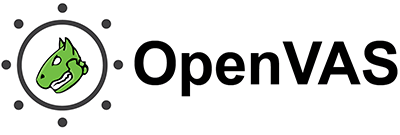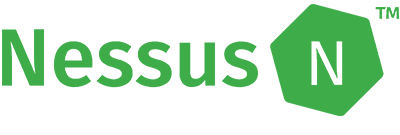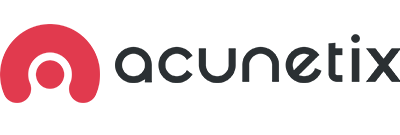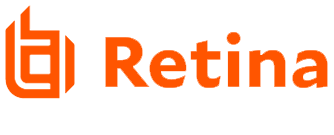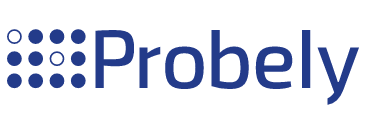If you follow the news of the technology world, you have seen a huge amount of pieces on a data breach or a website being hacked. That’s because no matter how far technology has come, hacking does not lag behind. Hacking tools and techniques keep growing more sophisticated and threatening, and if you want your software to be safe, you need to be one step ahead.
And that is what security testing and penetration testing tools are for. Their primary function is to check the software for vulnerabilities that could result in hacking and data leak, without accessing the source code.
Those vulnerabilities must be immediately identified and addressed, which is done through continuous and automated scanning procedures that aim to find potential loopholes in the software.
There are a number of security testing tools in the market, so we have cut this list to the top 10 open source web testing tools as they are free and can be customized to your specific requirements.
Here you go!
Netsparker Review
Netsparker is a great tool with the main advantage of being easy to use. Such user friendliness singles this one out from the rest. Besides, it is a powerful tool that gives highly accurate results. It can identify such vulnerabilities as SQL injection and cross-site scripting among more than 1000 others. You can scan any web-related app, checking for coding related errors.
This tool uniquely verifies the identified vulnerabilities proving they are not false positives but real. Such possibility saves your time on verifying the identified vulnerabilities manually after a scan.
- Clean and friendly UI
- Sufficient selection of workflows
- Numerous vulnerabilities points to test for
- False positive detection
- Proof of exploit for vulnerabilities
- Decent customer service
- Integrations only with popular systems
- Limited number of URLs that can be scanned
- Non-competitive pricing
- Most suitable only for the companies using a lot of API calls
- Long time to complete a scan
“I like working with NetSparker because it’s super customizable in terms of technologies to be scanned. You basically work hard once, and after you’ve figured out the perfect settings for the vulnerability scan, you can apply those to similar apps, which saves a ton of time. On the flip side, you may want to remove some technologies the scan will be checking if you expect it to be a fast process. Also, the tool is on the pricier side, which may be a major disadvantage for smaller brands,”
OpenVAS Review
OpenVAS is a vulnerability analysis tool that is used to scan servers and network devices. This scanner will look for an IP address and check for any open services by scanning through open ports, improper configuration and vulnerabilities in existing objects. After the scan is completed, an automatic report is generated and sent by email for further study and correction.
If you already have your own incident response system or incident detection system, then OpenVAS will help you improve your network monitoring with network testing tools and alerts in general.
- Free of charge
- Has a vast community
- Easy to use
- Perfect for fast preliminary scanning
- Can quickly validate the accuracy of external test results
- Not suitable for enterprise-level security scans
- Reports aren’t easy to digest
- UI is not as refined as competitors’
- Plugins are not updated regularly
- Only non-credentialed scans
Nessus Review
Nessus Professional is for security professionals that deal with patches, software problems, malware removal tools and adware, as well as improper configuration in a wide range of operating systems and applications.
Nessus introduces a proactive security process, identifying vulnerabilities before hackers use them to penetrate the network, and also eliminates the disadvantages of remote code execution. It takes care of most network devices, including virtual, physical, and cloud infrastructure.
- Multitude of different scan types
- Handy categorization of vulnerabilities
- Clear reporting and remediation recommendations
- Plugins for almost every OS and device
- Great community support
- Malfunctioning scan completion status
- Limited number of features in free version
- Not appropriate for penetration testing
- Time-consuming scans and tool updates
- Redundant plugins in plugin groups with no disable option
“I rely on Nessus whenever I perform an infrastructure audit for a client or tasked with identifying software flaws and missing patches in web apps. What I like about Nessus is its user-friendly UI design and an abundant list of plugins to assess different vulnerabilities. At the same time, I would definitely appreciate an upgrade in terms of the speed so that I didn’t have to break each scan into smaller chunks. Its reporting tool is pretty basic, and some may view it as a drawback, but it works just fine for me – it displays all the essentials you need to make the right decision,”
Acunetix Review
Acunetix is a fully automated penetration testing tool that detects and reports 4500+ web app vulnerabilities. But what makes it stand out from other tools is its ability to crawl thousands of pages without any interruptions.
This web vulnerability scanner automates the tasks that can take hours if tested manually, providing fast and accurate results without false positives. It fully supports JavaScript, HTML5, CMS systems, and single-page applications and can easily generate many kinds of technical and compliance reports.
- Warnings categorized by the hazard level
- Easy-to-digest reports
- Relatively fast scans
- Continuous scanning option
- Built-in features beyond vulnerability scanning
- Strong user community
- Instances of scans freezing with no option to resume
- Authentication issues with enterprise apps involving multiple endpoints
- Manual review of false positives
- Frequently changing pricing plans
- Annoying alert system
Retina Review
Retina vulnerability scanner is an open source web app security testing tool that takes care of managing vulnerabilities from a central location. Its features include patching, compliance, configuration, and reporting.
It takes care of databases, workstations, servers, analyzes and web applications with full support for integrating VCenter and virtual application scanning environments. It takes care of several platforms, offering a complete cross-platform vulnerability assessment and security.
- Relatively fast scans
- Frequently updated threat database
- Well-suited both for vulnerability scanning and basic penetration testing
- Patch management service + behavioral analytics
- Easy deployment
- Friendly UI
- Needs a beefy server to run smoothly
- Very basic reporting
- High support cost
- Suggested solutions are mostly preliminary
- Frequent server connection issues, resulting in manual installation of updates
“In terms of features and overall functionality, Retina is very close to Nessus, and it has been upgraded very well over the last years. I really like that it does not consume too much bandwidth and network resources. One more significant advantage of this security tool is that the scanning process goes pretty fast. As for the obvious con, you do need a decent server to run it because the tool is quite bulky. Retina also requires some onboarding time to get the gist of it, yet for an experienced security expert it’s a no-brainer,”
Probely Review
This tool not only scans web apps on security issues but provides guidance on how to fix them. Its intuitive interface follows an API-first development approach, so all the features are provided through an API. Thanks to this, Probely can be integrated into Continuous Integration pipelines for security testing automation. The tool covers thousands of vulnerabilities and can check specific requirements, including GDPR, ISO27001, PCI-DSS, and HIPAA.
- Straightforward in use
- Evidence-based scans
- Developer-friendly reports
- High automation potential in CI/CD
- Flexible GUI
- No proper indication of the scan progress
- Incomprehensive API support and documentation
Zed Attack Proxy Review
ZAP is a powerful scanner and security vulnerability finder for web applications, easy to use even if you are a beginner in penetration testing. For advanced users, this tool supports command-line access. It allows finding a variety of security vulnerabilities in web apps during the development and testing phases. Among its features are AJAX spiders, forced browsing, web socket support, and REST-based API.
- Free of charge
- Both vulnerability and proxy scanner
- Automatic updates and pull request analysis
- Intuitive UI
- Stable performance
- Insufficient documentation
- Complicated deployment and maintenance
- Many false positives
Wfuzz Review
It’s a web application security testing tool that is designed for brute-forcing web apps. The tool has no GUI interface and can be used only via command line. It provides authentication support, multi-threading, cookies fuzzing, proxy and SOCK support, and multiple injection points.
- Complex attacks in different web app components (authentication, directories, headers, etc)
- Modular Python framework comfortable even for amateur contributors
- All parameters brute-forcing (POST and GET)
- Multiple encoders per payload
- Multiple proxy support (each request through a different proxy)
- Result filtering
- Insufficient community support
- Lack of GUI
- Functionality limited to brute-force attacks
SQLMap Review
It’s a popular pen testing tool that is used for detecting and utilizing SQL injection issues in a database.
The tool has a command-line interface and offers a variety of features. It also supports six types of SQL injection methods and such database services as Oracle, MySQL, PostgreSQL, and Microsoft SQL Server.
- Full support for a range of popular database management systems
- Bypass methods
- Shell uploading via SQL map
- Automatic recognition of password hash formats
- Ability to dump database tables entirely or specific characters from each column’s entry
- Requires strong coding background to interpret the results
- Gets stuck in case of network errors
- Slow vulnerability scanning process
- Lack of appropriate GUI
Metasploit Review
Metasploit is a robust pen testing tool for probing vulnerabilities on networks and servers. This tool enables testing both via command line and GUI, and it contains a variety of modules, such as exploits, payloads, encoders, listeners, nops, and several more. Since Metasploit is quite popular in the hacker community, more and more security experts get their hands on this tool to be aware of what a malicious attacker can do with it.
- Extensive pentesting toolkit
- Multiple sessions at the same time
- Multi-platform
- One of the largest exploit databases
- Workspaces for collaborative pentesting
- Huge community support
- Infrequent updates
- Brief documentation for using exploits
- Risk of damage to targeted systems
- Scarce options for encrypting payloads
To help you choose the most fitting tool fast and easy, we have made a comparative table with the most important features you might need in them. Take a look!
| Features/Tested vulnerabilities | Platforms support | Server configuration issues | Specific version vulnerabilities | DoS vulnerability | Patch Management | SQL injection | Cross-site scripting |
| Netsparker | Windows |  |
 |
 |
 |
 |
 |
| OpenVAS | Windows, Linux, MacOS |  |
 |
 |
 |
 |
 |
| Nessus | Windows, Linux, MacOS |  |
 |
 |
 |
 |
 |
| Acunetix | Windows, Linux |  |
 |
 |
 |
 |
 |
| Retina | Windows, Linux, MacOS |  |
 |
 |
 |
 |
 |
| Probely | Windows, Linux, MacOS |  |
 |
 |
 |
 |
 |
| ZAP | Windows, Linux, MacOS |  |
 |
 |
 |
 |
 |
| Wfuzz | Windows, Linux, MacOS |  |
 |
 |
 |
 |
 |
| SQLmap | Windows, Linux, MacOS |  |
 |
 |
 |
 |
 |
| Metasploit | Windows, Linux, MacOS |  |
 |
 |
 |
 |
 |
Hope this was helpful, and you have found the right tool for scanning your software. But if you already use one that is not on the list, drop it in the comments!



